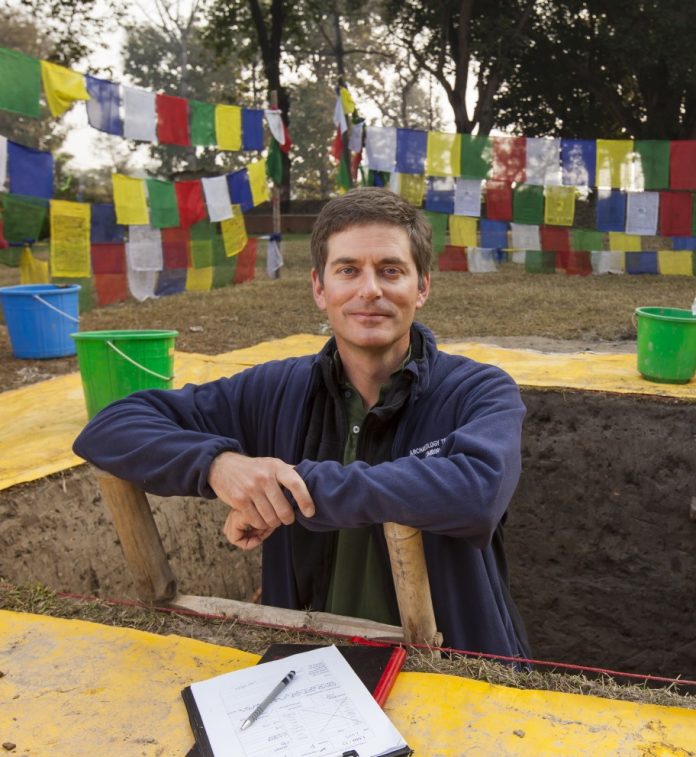Through the prestigious designation, awarded by the United Nations Educational, Scientific and Cultural Organisation (UNESCO), Durham University will seek to develop debates, policies and toolkits to evaluate the economic, ethical and social impacts of cultural heritage, strengthen its protection in crisis and conflict situations, and prevent its use to exacerbate differences and tensions.
Durham’s Professor of Archaeology and Pro-Vice Chancellor, Professor Robin Coningham, has been appointed as the UNESCO Chairholder.
The UK’s leading South Asian archaeologist, Professor Coningham came to public attention last year when he made a ground-breaking discovery about the date of the Buddha’s birth that has the potential to rewrite the history of Buddhism. Professor Coningham led a team of archaeologists on an expedition to Nepal where they discovered a tree shrine at Lumbini that predates all known Buddhist sites by at least 300 years.
Professor Robin Coningham said: “Cultural heritage and archaeology can play a unifying role in post-conflict responses but the unethical or imbalanced promotion may alienate communities, generate conflict and lead to the destruction of heritage. Through the Durham UNESCO Chair, we seek to address this challenge by shaping debates and policies on professional standards and responsibilities and the economic, ethical and social impacts of the promotion of heritage”.
Durham is the UK’s highest research-ranked Archaeology Department (RAE2008). Its archaeologists have generated significant impact by applying multi-disciplinary techniques across South Asian World Heritage Sites, with local and international partners. Durham also hosts the Centre for Ethics of Cultural Heritage (CECH), an innovative centre promoting research into the philosophical, anthropological, legal and ethical components of archaeological practice and cultural heritage management. The Chair will work with and enhance the work of CECH, furthering this focus of interdisciplinary collaboration and debate.
Professor Ray Hudson, Acting Vice-Chancellor of Durham University, said: “It is extremely important that the valuable work of Robin Coningham and the multidisciplinary team of researchers and practitioners has been internationally recognised in this way as this will offer an added impetus to further explore the interface of archaeology, ethics and cultural heritage within a programme of research and practice linking South Asia and the UK.
“It is also extremely fitting that Durham University should host this UNESCO Chair as joint custodians alongside Durham Cathedral of our own UNESCO World Heritage site.”
Professor Kiran Fernandes, Higher Education Director for the UK National Commission for UNESCO and Head of Department of Management at Durham University said: I am delighted that Durham is joining a national and global network of eminent research institutions that, within their different fields and academic focus, are all working towards achieving UNESCO’s overall goal of building peace and sustainable development in the minds of men and women. Through the Chair, Durham will lead the way in exploring the role that cultural heritage and archaeology can play in promoting peace, security and inter-cultural understanding”.

